Setne Khamwas And The Book Of Magic Written By Thoth
A. Sutherland - AncientPages.com - According to an ancient Egyptian myth, it is hazardous to interfere with the dead. This warning was written down on papyri dated to the Ptolemaic Period (340-330 BC.
Pectoral from Khaemweset's Serapeum tomb burial bearing Ramesses II's cartouche. source
Setne Khamwas (also Setne Kham, Khaemwaset, Khamwese) - "he who appeared in Thebes" was the fourth son of Ramesses II and high priest of Ptah at Memphis. He was a magician who devoted his time to studying books and ancient monuments.
His mother was Istnofret, one of the most prominent of the royal wives of Pharaoh Ramesses II and Nefertari, and was the chief queen after Nefertari's death. Setne Khamwas later became famous as a 'magician'; today, he is considered the first archaeologist thanks to his interest in ancient monuments and their restoration.
For example, the 5th Dynasty pyramid of Unas at Saqqara bears Setne Khamwas' inscription high up on the south face of the structure.
One day, he was told of the existence of a book of magic written by the god Thoth himself. He learned that the book was kept in the tomb of Prince Neferkaptah, who had lived a long time ago, and his tomb was located in the vast necropolis to the west of Memphis.
The Tomb of Khaemweset is one of the finest, with beautifully preserved colors; the reliefs give prominence more to the prince's father Ramses III, than to the prince himself. Image: Public Domain
Most probably, Setne searched for the "Book of Thoth," written by the god of Wisdom. The mysterious work was the legendary repository of occult knowledge, which Neferkaptah stole, but possessing the magical book cost him his life.
Finally, Setne finds the tomb and opens it with his brother's help. He entered the tomb and saw the magical book radiating an intense light.
He tried to seize it, but the spirits of Neferkaptah, his wife and son, suddenly appeared to defend their cherished possession.
Setne had to play a board game with Neferkaptah to earn ownership of the magical book.
"If you want the book," Neferkaptah said, "you will have to play draughts for it." They took out aboard and began to play.
Setne Khamwas lost three games. After each victory, Neferkaptah hit his opponent over the head and drove him to the ground until, finally, only his head was above the soil. At this point, Setne Khamwas sent his brother to fetch his magic amulets; by their power, he could break free and grab the book.
Gold mask with the likeness of Khaemweset from the Apis bull burial. source
On his return to the outside world, he began to read avidly, ignoring all advice to return to the book.
Shortly afterward, however, he saw a beautiful woman walking past his window and was captivated by her sight. He begged her to make love to him. She said she would, but only because he hands her all his property and kills his children. Setne Khamwas agreed, little knowing that the woman was a spirit called Tabubu and that he was under her spell.
Setne Khamwas hardly had time to remove his clothes when Tabubu vanished, and the pharaoh suddenly entered the room. His embarrassment was relieved only by the news that it had all been a bad dream and his children were still alive.
He was determined to return the book to Neferkaptah's grave and relinquish ownership. He realized the book's knowledge was dangerous, and it would be better to keep it hidden forever.
Is it so that magic is a weapon reachable for humans, but the ultimate secrets of life and the world belong only to the gods?
Updated on Nov 22, 2023
Written by A. Sutherland - AncientPages.com Staff Writer
Copyright © AncientPages.com All rights reserved. This material may not be published, broadcast, rewritten or redistributed in whole or part without the express written permission of AncientPages.com
Expand for referencessource:
Clayton P. A. Chronicles of the Pharaohs
M. Bunson, Encyclopedia of Ancient Egypt
More From Ancient Pages
-
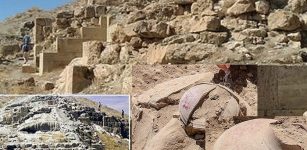 Almost 3,000 Year-Old Burial Site Of Urartian Royals Discovered In Turkey’s Famous Van
Archaeology | Jul 31, 2019
Almost 3,000 Year-Old Burial Site Of Urartian Royals Discovered In Turkey’s Famous Van
Archaeology | Jul 31, 2019 -
 Ji Gong: Legendary Ancient Monk Who Defended People Against Injustice
Chinese Mythology | Jan 31, 2016
Ji Gong: Legendary Ancient Monk Who Defended People Against Injustice
Chinese Mythology | Jan 31, 2016 -
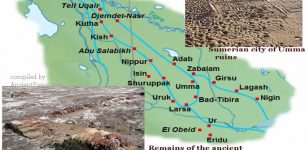 Infamous End Of Lugalzagesi – Ambitious King Who United Sumer
Featured Stories | Apr 30, 2020
Infamous End Of Lugalzagesi – Ambitious King Who United Sumer
Featured Stories | Apr 30, 2020 -
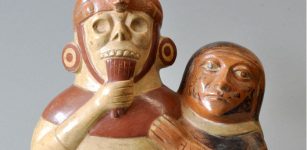 South American Musical Instruments Reflect Population Relationships – Archaeological Records Reveal
Archaeology | Sep 20, 2021
South American Musical Instruments Reflect Population Relationships – Archaeological Records Reveal
Archaeology | Sep 20, 2021 -
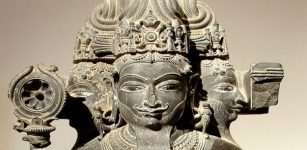 Brahma: First God In Hindu Trimurti, Creator Of The World And All Creatures
Featured Stories | Apr 17, 2019
Brahma: First God In Hindu Trimurti, Creator Of The World And All Creatures
Featured Stories | Apr 17, 2019 -
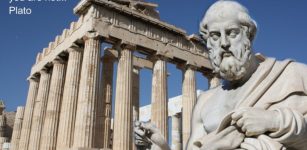 Famous Philosopher Plato: One The Greatest Thinkers Of All Time And His Concept Of Soul
Featured Stories | Jun 25, 2018
Famous Philosopher Plato: One The Greatest Thinkers Of All Time And His Concept Of Soul
Featured Stories | Jun 25, 2018 -
 Gorgo – Queen Of Sparta And Wife Of King Leonidas Broke A Secret Code And Stopped An Invasion
Featured Stories | Aug 5, 2019
Gorgo – Queen Of Sparta And Wife Of King Leonidas Broke A Secret Code And Stopped An Invasion
Featured Stories | Aug 5, 2019 -
 Lesicheri Obelisk – Enigmatic Ancient Roman Structure – Bulgaria’s Tallest Surviving Landmark
Featured Stories | Jan 24, 2023
Lesicheri Obelisk – Enigmatic Ancient Roman Structure – Bulgaria’s Tallest Surviving Landmark
Featured Stories | Jan 24, 2023 -
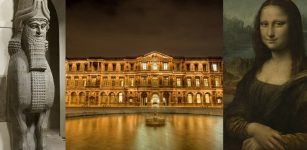 Louvre Museum’s Entire Collection Is Now Available Online To Anyone
News | Mar 31, 2021
Louvre Museum’s Entire Collection Is Now Available Online To Anyone
News | Mar 31, 2021 -
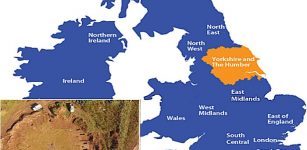 Circular-Shaped 4000-Year-Old Wooden Henge Discovered In Yorkshire, Historic County of Northern England
Archaeology | Jan 3, 2018
Circular-Shaped 4000-Year-Old Wooden Henge Discovered In Yorkshire, Historic County of Northern England
Archaeology | Jan 3, 2018 -
 Ancient Mexicans’ Precise Solar Observations Fed Millions – Remarkable Farming Calendar Invented
Archaeoastronomy | Dec 12, 2022
Ancient Mexicans’ Precise Solar Observations Fed Millions – Remarkable Farming Calendar Invented
Archaeoastronomy | Dec 12, 2022 -
 Njord: Norse God Of The Seas And Seafarers And His Unhappy Marriage To Skadi
Featured Stories | Jul 10, 2018
Njord: Norse God Of The Seas And Seafarers And His Unhappy Marriage To Skadi
Featured Stories | Jul 10, 2018 -
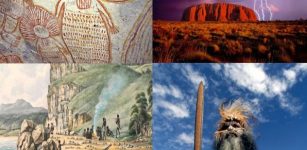 Ancient DNA Reveals A 50,000-Year-Old Secret And Re-Writes History Of Australia
Archaeology | Mar 8, 2017
Ancient DNA Reveals A 50,000-Year-Old Secret And Re-Writes History Of Australia
Archaeology | Mar 8, 2017 -
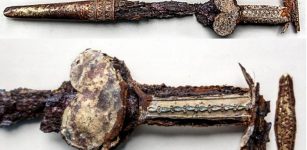 Scythian Gold-Plated Sword ‘Akinakes’ Unearthed In Southern Ukraine
Archaeology | Oct 25, 2019
Scythian Gold-Plated Sword ‘Akinakes’ Unearthed In Southern Ukraine
Archaeology | Oct 25, 2019 -
 Neanderthals: How A Carnivore Diet May Have Led To Their Demise
Featured Stories | Nov 7, 2022
Neanderthals: How A Carnivore Diet May Have Led To Their Demise
Featured Stories | Nov 7, 2022 -
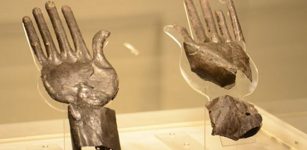 Mystery Of The Silver Hands Discovered In An Etruscan Tomb Full Of Secrets
Artifacts | Jun 12, 2015
Mystery Of The Silver Hands Discovered In An Etruscan Tomb Full Of Secrets
Artifacts | Jun 12, 2015 -
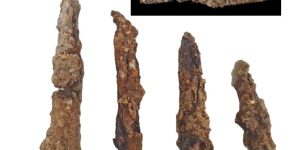 Location of Roman Ballista Machines During The Siege Of Jerusalem – Uncovered
Archaeology | Aug 17, 2022
Location of Roman Ballista Machines During The Siege Of Jerusalem – Uncovered
Archaeology | Aug 17, 2022 -
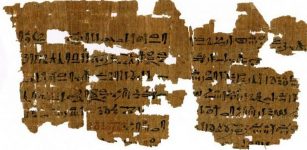 Knowledge Of Ancient Medicine Hidden In Undeciphered Egyptian Manuscripts
Archaeology | Aug 16, 2018
Knowledge Of Ancient Medicine Hidden In Undeciphered Egyptian Manuscripts
Archaeology | Aug 16, 2018 -
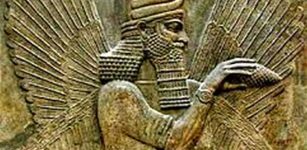 Glory And Fall Of Babylon Dedicated To The Cult Of Marduk
Featured Stories | Oct 11, 2016
Glory And Fall Of Babylon Dedicated To The Cult Of Marduk
Featured Stories | Oct 11, 2016 -
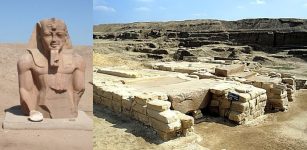 Pi-Ramesse: Pharaoh Ramesses II’s Great Capital Surprisingly Identified In Two Locations
Featured Stories | Jun 9, 2022
Pi-Ramesse: Pharaoh Ramesses II’s Great Capital Surprisingly Identified In Two Locations
Featured Stories | Jun 9, 2022



